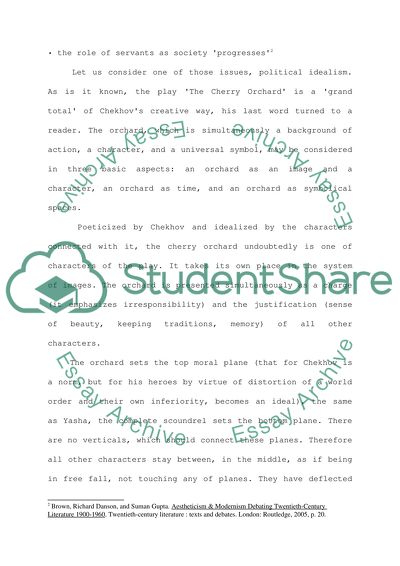Cite this document
(“'The Cherry Orchard' by Chekhov Book Report/Review”, n.d.)
'The Cherry Orchard' by Chekhov Book Report/Review. Retrieved from https://studentshare.org/literature/1516802-the-cherry-orchard-by-chekhov
'The Cherry Orchard' by Chekhov Book Report/Review. Retrieved from https://studentshare.org/literature/1516802-the-cherry-orchard-by-chekhov
('The Cherry Orchard' By Chekhov Book Report/Review)
'The Cherry Orchard' By Chekhov Book Report/Review. https://studentshare.org/literature/1516802-the-cherry-orchard-by-chekhov.
'The Cherry Orchard' By Chekhov Book Report/Review. https://studentshare.org/literature/1516802-the-cherry-orchard-by-chekhov.
“'The Cherry Orchard' By Chekhov Book Report/Review”, n.d. https://studentshare.org/literature/1516802-the-cherry-orchard-by-chekhov.


